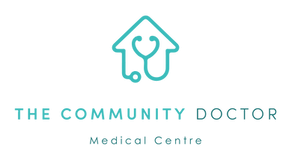June is an important month for men’s health—it contains 7 days that shine a spotlight on the importance of men’s health:
Men’s Health Week aims to highlight, promote and support the health and wellbeing of men and boys in our communities.
This year, the theme of Men’s Health Week is Healthy Habits which encourages men and boys to build healthy habits by identifying small changes that benefit their health and wellbeing.
As big advocates of men’s health, our team has made it their mission to offer:
- The ins and outs of men’s health
- Small (and simple) changes you can make to be healthier
- The biggest health risks for that men face
- Warning signs that you should know about
The ins and outs of men’s health
Men’s health means the physical, mental, and emotional well-being of males. It involves understanding and addressing the unique health challenges and concerns faced by men throughout different stages of their lives.
Physically, men’s health focuses on maintaining optimal functioning of men including:
- Reproductive system
- Respiratory health
- Knees, back and other areas that are prone to sports injuries
- Regular check-ups
- Screenings for conditions like prostate cancer, and addressing issues like erectile dysfunction
Men’s health and healthy habits include maintaining a healthy lifestyle through proper nutrition, regular exercise, and avoiding risky behaviours such as smoking and excessive alcohol consumption.
Men’s mental health also recognises and manages conditions like depression, anxiety, and stress, as well as promoting positive coping mechanisms through professional help.
Key messaging includes removing taboos and supporting men to openly talk about issues they may have while never avoiding seeking medical help.
Small (and simple) changes you can make
Did you know that even small and simple changes in daily routines and habits can have a significant impact on men’s overall health?
Here are a few suggestions:
Do regular physical activity
We’ve heard it all before; do regular exercise, but there’s a reason why everyone shouts it from the rooftops.
Incorporating physical activity into your daily routine can improve cardiovascular health, maintain a healthy weight, boost energy levels, and reduce the risk of chronic diseases.
Start by engaging in simple exercises such as walking or jogging. Gradually increase the intensity and duration of your workouts to challenge your body and achieve greater fitness goals.
Hint: If getting started is the hardest part of exercise, reward yourself. For example, allow yourself to enjoy a meal or spend some time on the couch AFTER completing some exercise.
A balanced and nutritious diet
This old cliche again. Opting for a healthy diet, and we all know what that is, has huge health benefits.
Minimise the intake of processed foods, sugary beverages, and high-fat snacks.
Pay attention to portion sizes and stay hydrated by drinking an adequate amount of water throughout the day.
Small changes like swapping sugary drinks with water or saying ‘NO’ to chips, iced coffee, energy drinks and alcohol is easy and rewarding.
Rewarding to your physical health, mental health AND your wallet that is.
Get enough sleep
Sleep plays a crucial role in maintaining good health. Aim for 7-9 hours of quality sleep each night.
Hint: “Quality” = without recent alcohol, caffeine or junk food consumption.
Sufficient rest offers massive wins, including
- Improved cognitive function
- Better mood
- Immune system boost
- Overall physical and mental well-being
Sleep deficiency is linked to a host of chronic health problems, including heart disease, kidney disease, high blood pressure, diabetes, stroke, obesity, and depression.
If you’re in a cycle of early starts Monday-Friday, and late nights on Fridays and Saturdays (especially with excessive alcohol), you’re likely putting your body at risk.
Make an appointment for a check-up today.
Prioritise stress management
Chronic stress can have detrimental effects on physical and mental health. That said, almost all of us have some stress in our lives.
Stress can come in many forms, like;
- Financial pressure
- Relationships
- Family and friends
- Work and study pressure
- Changes in your life
- Worrying about something
- Discrimination, hate or abuse
- Overwhelming responsibilities
And that’s just naming a few.
Learning to recognise and cope with stress effectively contributes to better emotional resilience and overall health.
Remember, making small changes over time is more sustainable than attempting drastic transformations all at once.

The biggest health risks that men face
Whether they like to admit it or not, men face multiple significant health risks that can seriously impact their quality of life.
Heart
One of the most prominent health risks for men is cardiovascular disease, including heart attacks and strokes. Factors such as high blood pressure, high cholesterol levels, smoking, and a sedentary lifestyle contribute to these conditions.
Cancer
Another major concern is prostate cancer, which is the most common cancer among men. Regular screenings and early detection are crucial for effective treatment.
Men also face higher risks of developing certain types of cancers, such as lung, colorectal, and liver cancer. Lifestyle factors such as smoking, excessive alcohol consumption, poor diet, and lack of exercise contribute to the increased risk.
If you haven’t had a screening in a while, or ever, get in touch with us.
Mental health
Mental health issues such as depression and anxiety pose significant risks for men’s health.
This is often due to expectations of strength and hiding, or at least not showing or talking about emotions and feelings.
Abuse and risks
Substance abuse, including alcohol, smoking and drug addiction further exacerbate the above.
Especially in their teen and young adult years, men are more likely to engage in risky behaviours, such as reckless driving and unsafe sexual practices, increasing their susceptibility to accidents, injuries, and sexually transmitted infections.
Men are typically more prone to workplace-related hazards and injuries, particularly in industries like construction, manufacturing, and transportation. Occupational hazards, such as exposure to chemicals, toxins, and physical hazards, can lead to long-term health issues and disabilities.
Warning signs to men’s health that you should know about
Being aware of men’s health warning signs is crucial for early detection and intervention.
Some key warning signs include:
- Changes in bowel or bladder habits, inc. blood in urine or stool
- Persistent constipation or diarrhoea
- Changes in urinary frequency or urgency
- Unexplained weight loss or gain
- Chronic fatigue
- Persistent pain, e.g., chest, abdomen, or back, should also be taken seriously
- Changes in mood or mental well-being, such as increased irritability, anxiety, or depression
Taking note of these warning signs is essential. If or when they occur, medical consultation is a must as early detection, proper diagnosis and professional treatment saves lives.
Regular check-ups and open communication with healthcare professionals are a vital ingredient in good men’s health and well-being.
If you’re concerned, chat to our team today.

Men’s health at the end of the day
Risks, warning signs and other medical conditions sound scary, and they are scary, but that doesn’t mean it’s time to stress.
It’s the small healthy habits that can make a huge difference.
Adding a little more exercise to your weekends, replacing unhealthy snacks with healthier choices or cutting down on alcohol and especially smoking can have huge advantages.
On the other hand, more time on the couch, more junk food and soft drinks for example, can come with huge disadvantages.
More often than not, a few simple changes to your daily life and a routine check-up is all that’s needed to ensure your health and wellbeing are on the right track.
Make June the month you put men’s health on a path to healthy habits.



